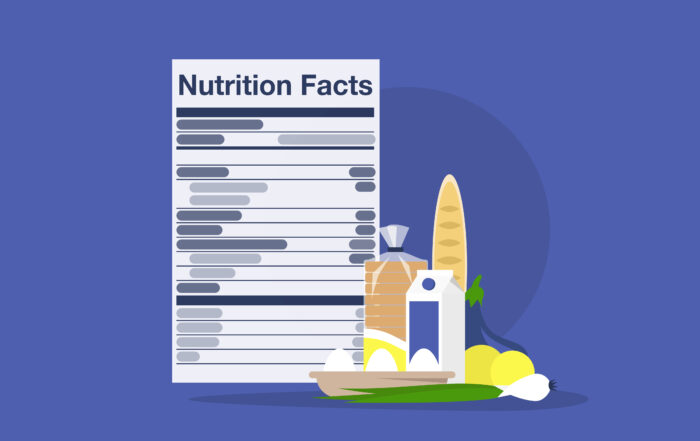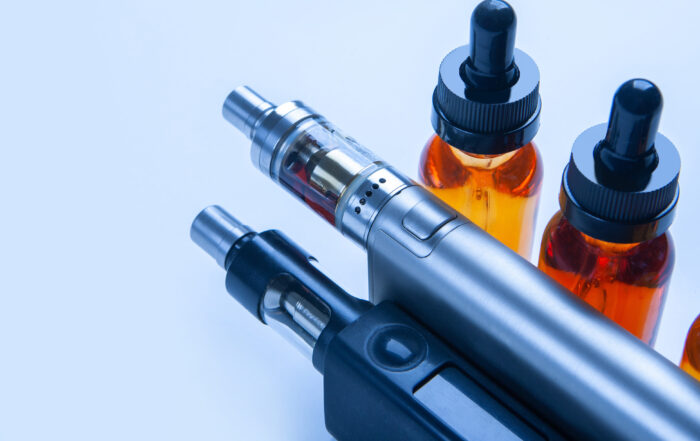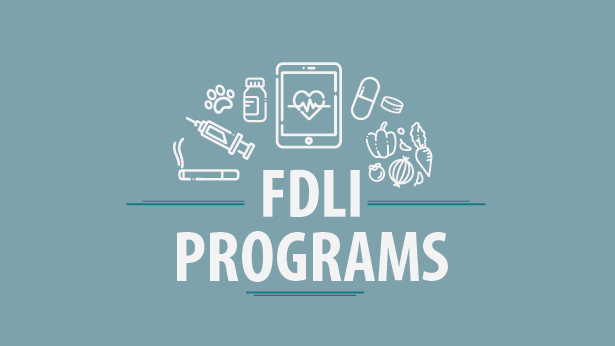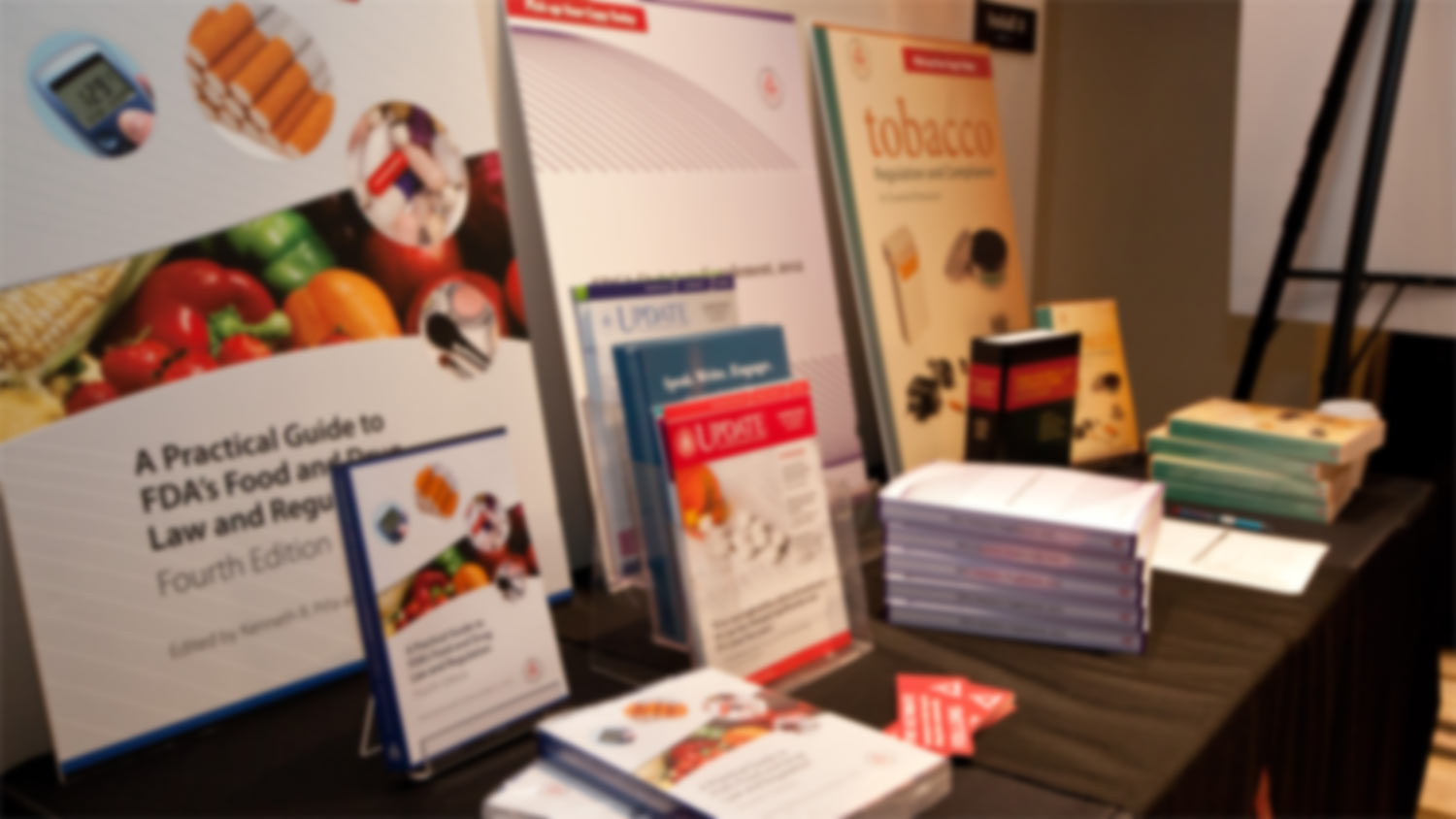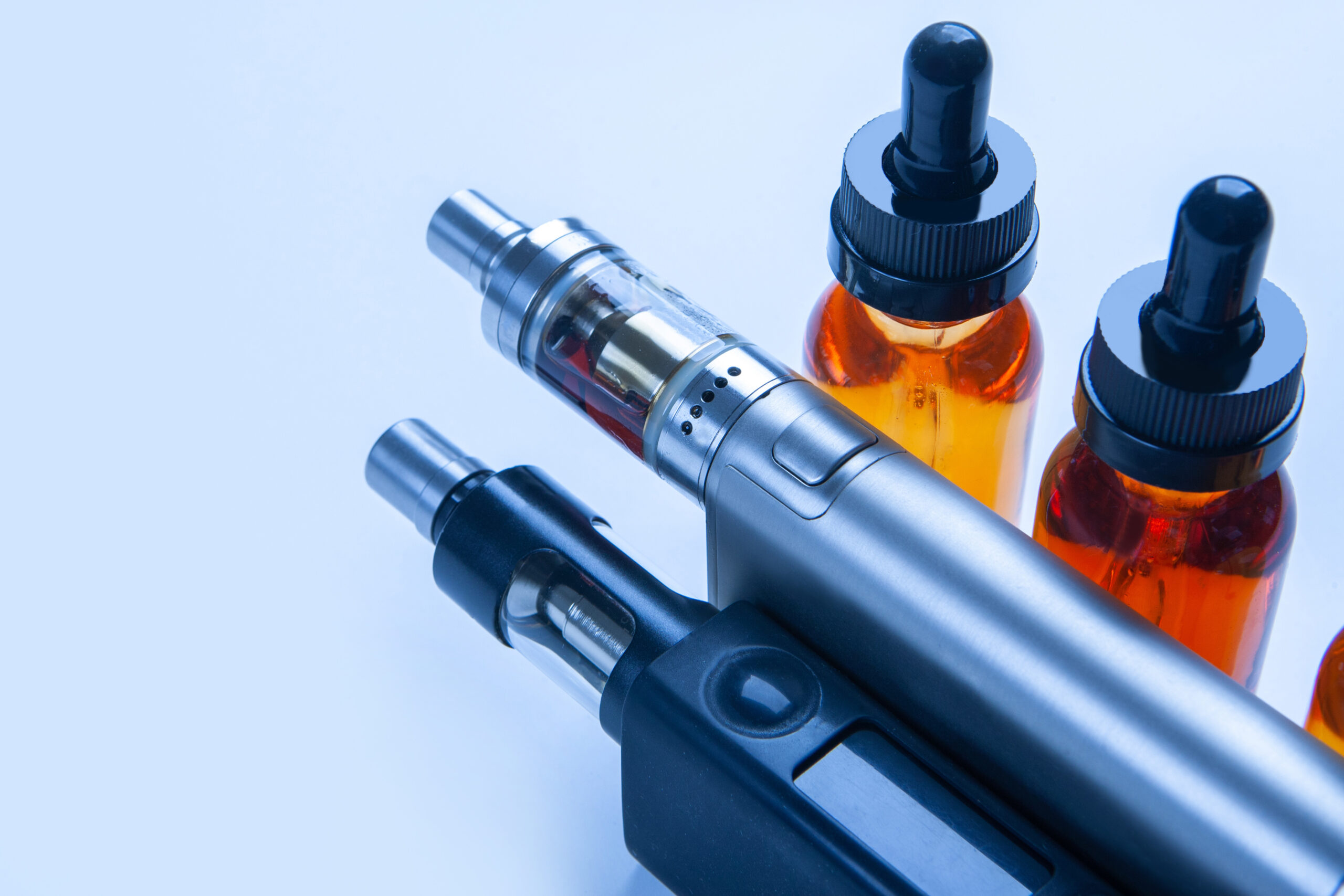
Will FDA Extend Its Proposed Ban on Menthol Cigarettes and Characterizing Flavors in Cigars to Flavored ENDS Products?
By Azim Chowdhury and Neelam Gill
On April 29, 2021, the U.S. Food and Drug Administration (FDA) announced that it will initiate a notice and comment rulemaking process to ban menthol-flavored cigarettes and all characterizing flavors in cigars and cigarillos within the next year.[1] This article provides background on the forthcoming flavor ban and discusses the potential implications for flavored electronic nicotine delivery systems (ENDS).
Cigarette Characterizing Flavor Ban in Tobacco Control Act
Although the availability of menthol cigarettes has long been a subject of controversy, because of the history of menthol use in cigarettes, Congress avoided legislating a menthol ban with the 2009 enactment of the Family Smoking Prevention and Tobacco Control Act (TCA), which prohibited the sale of cigarettes with characterizing flavors—yet specifically exempted menthol and tobacco flavors from the ban.[2]
More specifically, the TCA established a tobacco product standard “special rule” for cigarettes that prohibits a cigarette or any of its component parts (including the tobacco, filter, or paper) from containing, as a constituent (including a smoke constituent) or additive, an artificial or natural flavor (other than tobacco or menthol) or a herb or spice, including strawberry, grape, orange, clove, cinnamon, pineapple, vanilla, coconut, licorice, cocoa, chocolate, cherry, or coffee, that is a characterizing flavor of the tobacco product or tobacco smoke.[3] The purpose of the cigarette flavor ban, according to FDA, is to reduce the burden of illness and death caused by tobacco products by making them less attractive to adolescents and to “remove an avenue that young people can use to begin regular tobacco use.”[4]
Instead of including menthol in the cigarette flavor ban, Congress directed the Tobacco Products Scientific Advisory Committee (TPSAC)[5] to review and report on the “issue of the impact of menthol in cigarettes on the public health, including such use among children, African-Americans, Hispanics, and other racial and ethnic minorities,” and gave FDA the authority to regulate the use of menthol in cigarettes through its rulemaking procedures.
In 2011, TPSAC published its long-awaited report on menthol cigarettes.[6] The report concluded that menthol cigarettes have an adverse impact on public health and do not provide any health benefit or reduced risk compared to non-menthol cigarettes. Consequently, TPSAC voted to remove menthol cigarettes from the marketplace. But the Committee also identified a number of negative consequences that could result from a menthol cigarette ban, including consumer evasion, aftermarket mentholation, and proliferation of black market products.
In the years following the TPSAC report, FDA issued an advance notice of proposed rulemaking (ANPRM) requesting information on whether it should take action to regulate menthol cigarettes,[7] published its preliminary scientific evaluation of the possible public health effects of menthol compared to non-mentholated cigarettes, and commissioned several menthol-related scientific studies. In 2013, a group of public health advocates filed a citizen petition urging FDA to take immediate action to prohibit menthol as a characterizing flavor in cigarettes.[8]
In 2018, then-FDA Commissioner Dr. Scott Gottlieb announced that the agency would soon begin the rulemaking process to ban menthol in cigarettes as part of the agency’s Comprehensive Plan for Tobacco and Nicotine Regulation.[9] But in 2020, having still received no response from FDA, the citizen petitioners filed a federal lawsuit to compel the agency to respond to the eight-year-old petition alleging, in part, that FDA’s failure to initiate the rulemaking process and prohibit menthol in cigarettes despite having sufficient evidence constituted an “unreasonable delay” of agency action under the Administrative Procedure Act.[10]
The call to ban all characterizing flavors in cigars and menthol cigarettes has received increasing support leading up to FDA’s April announcement. On January 22, 2021, approximately two dozen attorneys general submitted a comment to the citizen petition asking FDA to initiate rulemaking to prohibit menthol cigarettes.[11] In addition, Health and Human Services Secretary Xavier Becerra expressed support for FDA’s menthol and cigar product standards and indicated that addressing tobacco-related death and disease is a priority for the Biden Administration.
FDA Announcement Regarding Upcoming Rulemaking
On April 29, 2021, FDA finally announced that it will initiate the notice and comment rulemaking process to not only ban menthol as a characterizing flavor in cigarettes, but also all characterizing flavors in cigars and cigarillos (including menthol) within the next year.
With respect to menthol cigarettes, FDA explained that, based on its understanding of the available science and evidence, menthol increases the appeal, potential for initiation, and addictiveness of cigarettes. Banning the flavored product that nearly 18.6 million American smokers use could save hundreds of thousands of lives, according to FDA, thereby significantly reducing tobacco-related disease and death in the United States.
With respect to cigars, FDA indicated that the continued availability of flavored cigars and cigarillos undermines the TCA’s characterizing flavor ban for cigarettes. After the TCA prohibited characterizing flavors in cigarettes, use of flavored cigars increased dramatically, according to the agency. Since cigars and cigarillos are combusted tobacco products, they pose the same public health problems as cigarettes “and are disproportionately popular among youth.” According to FDA, in 2020, more young people first tried a cigar every day than tried a cigarette, and 74% of youth aged 12–17 who use cigars said they smoke cigars because they come in flavors they enjoy.[12]
Potential Impact on Flavored ENDS
Not mentioned in the FDA announcement are e-cigarettes or electronic nicotine delivery systems (ENDS), which come in a wide variety of non-tobacco flavors and have been the subject of much debate. By way of background, an ENDS product that contains tobacco-derived nicotine, or that falls withing meaning of a component or part of an ENDS product, is a “tobacco product” as defined in the FDCA. Following FDA’s Deeming Rule, these products became regulated tobacco products subject to all the TCA requirements, including premarket review for “new” tobacco products (i.e., products introduced or modified after the February 15, 2007 “grandfather date”). With respect to premarket review, because there are no confirmed grandfathered ENDS that were on the market as of February 15, 2007, all ENDS products require FDA marketing authorization through the premarket tobacco product application (PMTA) process.
For a product to be authorized through the PMTA pathway, the applicant must demonstrate that the product is appropriate for the protection of the public health (APPH). This public or population health standard is quite high and requires considering the product’s risks and benefits to the population as a whole, including users and nonusers of the tobacco product, and taking into account the increased or decreased likelihood that existing users of tobacco products will stop using such products, and the increased or decreased likelihood that those who do not use tobacco products will start using such products. All flavored ENDS must go through this scientifically rigorous PMTA review process to prove they are APPH before receive marketing authorization. Menthol cigarettes and flavored, mass-produced cigars and cigarillos, however, are not always subject to such premarket review (as they may be grandfathered or eligible for the substantial equivalence (SE) or SE exemption pathways).
Moreover, all ENDS that are legally on the market today are subject to FDA’s enforcement “compliance policy.” While the FDA could not modify the statute’s 2007 grandfather date, in the Deeming Rule, the agency established an enforcement “compliance policy” permitting non-grandfathered deemed products (including ENDS) on the market as of the effective date of the rule (August 8, 2016) to remain on the market for a certain amount of time until premarket applications became due. This premarket application deadline for currently marketed deemed products has shifted over the years from August 2018 to August 2022 to finally, after a court order, September 9, 2020.[13]
This PMTA deadline applied to all ENDS products except for non-tobacco and non-menthol flavored cartridge-based ENDS (such as the JUUL), as well as any ENDS product that is targeted to minors or likely to promote ENDS use by minors, or for which the manufacturer has failed to take adequate measures to prevent minors’ access. For ENDS products that fall in these categories, due to rising concerns of youth use, FDA published an Enforcement Priorities Guidance ending the compliance policy on February 6, 2020.[14] In other words, a cartridge or pod-based ENDS that comes in flavors other than tobacco or menthol can only be marketed today if it has obtained PMTA marketing authorization.
For all other ENDS product types (e.g., e-liquids, open-systems, non-cartridge disposables, etc.), to be legally marketed today, they must have been on the U.S. market on August 8, 2016 and subject to a PMTA submitted to FDA on or before September 9, 2020. If they meet these criteria, pursuant to the 2020 district court order and FDA’s current enforcement policy, they may remain on the market during FDA’s PMTA review for up to one year, or until September 9, 2021. FDA has further indicated that the court order continues to permit the agency to determine, at its discretion (i.e., on a case-by-case basis), whether to allow an ENDS product subject to a timely-submitted PMTA to remain on the market after the one-year compliance period ends on September 9, 2021. Any ENDS product marketed without authorization after that time would be subject to enforcement by FDA.
In sum, all ENDS products must go through FDA premarket review to determine if it would be APPH to permit the continued marketing of a flavored ENDS product.[15] This requires case-by-case determinations based on product-specific information and science, including consumer perception and behavioral intention data. The flavor of any ENDS product, including menthol, will be assessed for impact on addiction, initiation, and appeal during this PMTA process. As a practical matter, given the likely delays and timing of the rule, FDA would be well into the PMTA process before a rule is finalized and effective. By then, FDA should have already made case-by-case determinations based on the science, consumer perception, and behavioral intention data to determine whether a particular flavored ENDS product is APPH and allowed to remain on the market.
While various federal legislation has been introduced over the years to ban flavored ENDS, at this point Congress is more likely to defer to FDA’s PMTA process rather than intervene and legislate a flavored ENDS ban. At the June 2021 House Oversight Committee hearing on youth vaping in America, Congressman Raja Krishnamoorthi appeared to defer to FDA’s premarket review process for ENDS products and stated that he was optimistic that FDA would “deny all PMTA applications for flavored vaping products.”[16] Notably, while FDA Acting Commissioner Janet Woodcock agreed that if FDA banned all flavored e-cigarettes, fewer kids would continue to vape, she declined to commit to banning flavored ENDS products. Instead, Dr. Woodcock indicated that FDA will focus on scientific evidence through its premarket review process, making its APPH determination on a case-by-case basis for flavored ENDS products.
But while a federal ban on flavored ENDS seems unlikely while FDA reviews the science and the manufacturers’ PMTA arguments, these products continue to face the threat of prohibition at the local level, as many state and local authorities and attorneys general[17] push for bans or request FDA to deny PMTAs for flavored ENDS. To date, at least four states have banned the sale of flavored ENDS (e.g., New York, New Jersey, Rhode Island, and Massachusetts),[18] with several more considering similar bans (e.g., Maryland, California, and Connecticut).[19]
Conclusion
Because FDA is charged with assessing the public health impact of flavored ENDS on a case-by-case basis during its review of PMTAs, the agency is unlikely to incorporate ENDS into its proposed rulemaking to ban menthol cigarettes and flavored cigars. This would only further complicate a rulemaking that is already poised to receive hundreds of thousands of comments, and will likely be litigated once final. Moreover, FDA is committed to taking an evidence-based approach to protect the public health, and should recognize that, unlike for menthol cigarettes and flavored cigars, which are combusted tobacco products, there is a growing body of evidence supporting that while these products should never be used by minors, flavored ENDS may still be appropriate for the protection of the public health, particularly for adult cigarette smokers seeking to switch to potentially less harmful nicotine delivery mechanisms.[20] State and local legislators pushing for flavor bans to protect youth should also consider the impact these actions will have on adult cigarette smokers, and should consider recent calls by tobacco control and public health experts for a more balanced approach to the regulation of these products.[21]
[1] See U.S. Food & Drug Admin., FDA Commits to Evidence-Based Actions Aimed at Saving Lives and Preventing Future Generations of Smokers, Press Announcements, Apr. 29, 2021, https://www.fda.gov/news-events/press-announcements/fda-commits-evidence-based-actions-aimed-saving-lives-and-preventing-future-generations-smokers.
[2] See TCA Section 907(a)(1)(A).
[3] This characterizing flavor ban applies to all tobacco products that meet the definition of a “cigarette” in Section 900(3) of the FDCA even if they are not labeled as “cigarettes” or are labeled as cigars or as some other product. In other words, if a product is labeled as a cigar or as some other tobacco product and FDA determines that it meets the definition of cigarette in the FDCA, then the product must comply with the characterizing flavor ban.
[4] See U.S. Food & Drug Admin., Guidance for Industry and FDA Staff: General Questions and Answers on the Ban of Cigarettes that Contain Certain Characterizing Flavors (Edition 2) (Dec. 23, 2009), https://fda.report/media/116681/Guidance-for-Industry-and-FDA-Staff—General-Questions-and-Answers-on-the-Ban-of-Cigarettes-that-Contain-Certain-Characterizing-Flavors-PDF.pdf.
[5] Congress authorized the creation of the TPSAC from a diverse array of technically qualified individuals trained and experienced in medicine, medical ethics, science, or technology involving the manufacture, evaluation, or use of tobacco products, in order to advise FDA on tobacco product regulation based on safety, dependence, and health issues related to the use of tobacco products, including the public health impact of menthol cigarettes.
[6] See U.S. Food & Drug Admin., TPSAC, Menthol Cigarettes and Public Health: Review of the Scientific Evidence and Recommendations (July 21, 2011), https://wayback.archive-it.org/7993/20170405201731/https:/www.fda.gov/downloads/AdvisoryCommittees/
CommitteesMeetingMaterials/TobaccoProductsScientificAdvisoryCommittee/UCM269697.pdf
[7] See Menthol in Cigarettes, Tobacco Products, Request for Comments, Docket No. FDA-2013-N-0521, 74 Fed. Reg. 44484 (July 24, 2013) (to be codified at 21 C.F.R. 1140); available at: https://www.federalregister.gov/documents/2013/07/24/2013-17805/menthol-in-cigarettes-tobacco-products-request-for-comments.
[8] Tobacco Control Legal Consortium et al., Citizen Petition to Food & Drug Admin., Prohibiting Menthol as a Characterizing Flavor in Cigarettes (Apr. 12, 2013) (Docket No. FDA-2013-P-0435). This Citizen Petition was supplemented on January 14, 2021 to update the administrative record with research developed since 2013 on the impact of menthol in cigarettes.
[9] See U.S. Food & Drug Admin., FDA’s Comprehensive Plan for Tobacco and Nicotine Regulation, July 21, 2019, https://www.fda.gov/tobacco-products/ctp-newsroom/fdas-comprehensive-plan-tobacco-and-nicotine-regulation.
[10] See Afr. Am. Tobacco Control Leadership Council et al. v. U.S. Dep’t. of Health & Hum. Serv. et al., No. 3:20-cv-04012 (N.D.Cal. 2020); Complaint available at: https://www.publichealthlawcenter.org/sites/default/files/AATCLC-and-ASH-v-FDA-et-al-Complaint.pdf.
[11] See Comment from Att’ys Gen. to Docket No. FDA-2013-P-0435, Jan. 22, 2021; available at: https://illinoisattorneygeneral.gov/pressroom/2021_01/2021-01-22_State_Comments_on_Citizen_Petition_on_Menthol_in_Cigarettes.pdf.
[12] See U.S. Food & Drug Admin., FDA Commits to Evidence-Based Actions Aimed at Saving Lives and Preventing Future Generations of Smokers, Press Announcements, Apr. 29, 2021, https://www.fda.gov/news-events/press-announcements/fda-commits-evidence-based-actions-aimed-saving-lives-and-preventing-future-generations-smokers.
[13] See Am. Acad. of Pediatrics v. Food & Drug Admin., No. 8:18-cv-883 (PWG), (D. Md. Apr. 22, 2020), ECF #182.
[14] See U.S. Food & Drug Admin., Ctr. for Tobacco Prod., Enforcement Priorities for Electronic Nicotine Delivery Systems (ENDS) and Other Deemed Products on the Market Without Premarket Authorization (Revised): Guidance for Industry (Apr. 2020), https://www.fda.gov/media/133880/download.
[15] See U.S. Food & Drug Admin., Premarket Tobacco Product Applications, https://www.fda.gov/tobacco-products/market-and-distribute-tobacco-product/premarket-tobacco-product-applications.
[16] See The Comm. on Oversight and Reform, An Epidemic Continues: Youth Vaping in America, June 23, 2021, https://oversight.house.gov/legislation/hearings/an-epidemic-continues-youth-vaping-in-america.
[17] See Att’ys Gen. letter to FDA (August 18, 2021); available at: https://ag.ny.gov/sites/default/files/2021-08-18_letter_to_fda_regarding_e-cigs_and_oral_products_signed.pdf.
[18] See N.Y. Pub. Health Law § 1399 (2020); NJ SB 3265; 216-RICR-50-15-6; 105 CMR 665.000, et seq.
[19] See Maryland HB 134; California SB 793 (suspended until November 2022 referendum vote); 2021 Bill Text CT S.B. 326.
[20] See Stacey A. McKenna, Banning Flavored E-Cigarettes Could have Unintended Consequences, R Street Policy Study No. 222 (Mar. 2021), https://www.rstreet.org/wp-content/uploads/2021/03/Updated-Final-No.-222-.pdf.
[21] See David J. K. Balfour et. al., Balancing Consideration of the Risks and Benefits of E-Cigarettes, Am. J. Pub. Health (Aug. 19, 2021), https://doi.org/10.2105/AJPH.2021.306416.
Update Magazine
Fall 2021
Interested in FDLI Membership?
Learn More About FDLI

 AZIM CHOWDHURY is a partner at Keller and Heckman and leads the firm’s Tobacco and E-Vapor Practice. He counsels tobacco, e-cigarette, e-liquid and CBD manufacturers, distributors, retailers, suppliers, and trade associations on matters relating to federal and state regulatory compliance, as well as public policy initiatives.
AZIM CHOWDHURY is a partner at Keller and Heckman and leads the firm’s Tobacco and E-Vapor Practice. He counsels tobacco, e-cigarette, e-liquid and CBD manufacturers, distributors, retailers, suppliers, and trade associations on matters relating to federal and state regulatory compliance, as well as public policy initiatives. NEELAM GILL is a senior associate in Keller and Heckman’s Tobacco and E-Vapor Practice. She advises clients on preparation of FDA submissions, including premarket tobacco product applications (PMTAs), substantial equivalence (SE) reports, tobacco product master files (TPMFs), and quality issues pertaining to the entire tobacco product lifecycle.
NEELAM GILL is a senior associate in Keller and Heckman’s Tobacco and E-Vapor Practice. She advises clients on preparation of FDA submissions, including premarket tobacco product applications (PMTAs), substantial equivalence (SE) reports, tobacco product master files (TPMFs), and quality issues pertaining to the entire tobacco product lifecycle.
